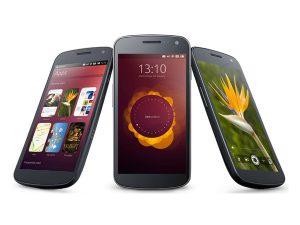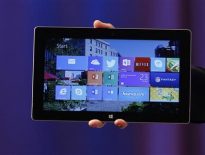Mozilla has announced the rollout of the first smartphones that run on its web-based operating system, Firefox. Designed specifically to appeal to first time users who find the cost of the latest iPhone or Android-powered handsets prohibitive, the Firefox smartphones come with modest hardware and equally modest price tags.
Mozilla’s chief technology officer, Brendan Eich, said the ZTE Open and Alcatel Touch Fire phones are available through the carrier Telefonica in Spain. They cost 69 euros and include 30 euros of usage credit, according to MIT’s Technology Review.
Eich told reporters gathered at Mozilla’s office in San Francisco that subscribers who agree to a two-year contract can pay as little as $3.11 per month for a Firefox phone. He said the devices will also be available in Poland soon — and in South America later in the year.
Deutsche Telekom and Telenor are scheduled to bring their own Firefox phones to a number of countries in Central and Eastern Europe, as well.
Eich says the company will eventually ship to retailers in North America, but Mozilla has yet to announce a date for the US rollout.
A new category
The Firefox OS relies heavily on web-based applications. Analysts assume this will make it easier for developers to build anything from business phone applications to games that work across multiple platforms. “The web is a rising tide around the world that everyone benefits from,” Eich said. “Firefox OS is just an instance of this new category of web-based device.”
Observers have long noted that the web — as an open platform — could suffer as developers devote more time to building applications for mobile operating systems such as iOS and Android. This would not only be detrimental to the web, but also to openness in general. Mozilla’s new operating system works to reverse this trend by bringing the open web into the mobile age.
According to Technology Review, Mozilla offers an app marketplace where users can download apps. The company is encouraging developers to create apps that can be downloaded from the web or run via a website.
Web-based apps
The mobile Firefox OS has been in development for two years, and includes a user interface that appears similar to that of the iPhone. Facebook and Twitter apps are preloaded onto the system, and users can integrate their Facebook friends’ contact information into the phonebook.
The phones come with a Firefox web browser, Nokia’s Here Map app, a camera app, and a Firefox Marketplace. Users can download more applications from major companies such as AirBnB, Wikipedia and Accuweather.
When you download a third-party application, you basically receive a shortcut to a mobile website. Click on the app, and the operating system takes you not to a native app, but to a mobile website. The phone stores your settings for those sites separately and locally, says Will Oremus of Slate.
An uphill battle
Initial impressions are mixed, but only because comparisons with the smooth user experience offered by the iPhone are inevitable. Given the cheap hardware, Rachel Metz of Technology Review reports that graphic-heavy websites take a while to load, for instance.
All in all, analysts seem to agree that Firefox phones will be facing an uphill battle even against the lowliest of the Android and Blackberry phones. Mozilla is however convinced that HTML 5 — the core technology of the internet — has a promising future in mobile computing.
For one, the company isn’t asking developers to create new apps from scratch. All they need to do is optimize their mobile sites to ensure easy access from Firefox phones.
Besides, as Eich points out, Mozilla is not looking to compete against Apple or Google on any serious scale. “Mozilla was never about taking over the market,” Eich said. “If we ever got near that, we’d demand a recount.”
Still, many are hoping that the new Firefox phones will catch on. This early, in fact, Mozilla is already looking to the future. “We went with smartphones first,” Eich says,”but we’re going to get to tablets ASAP.”







